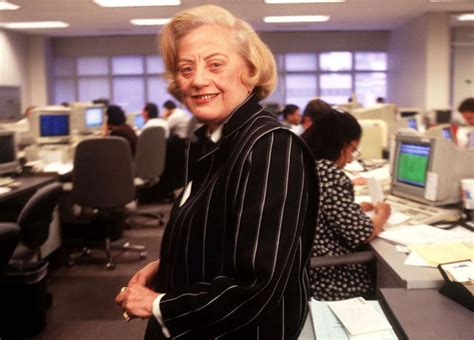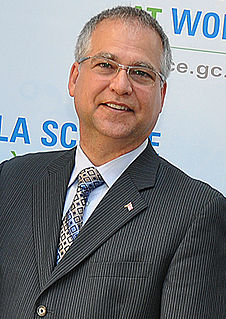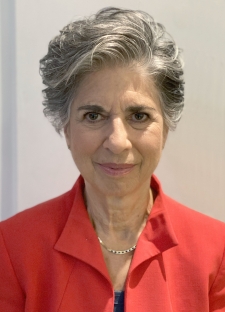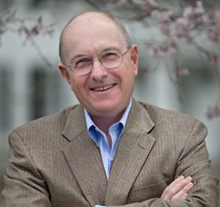Top 892 Investors Quotes & Sayings - Page 14
Explore popular Investors quotes.
Last updated on December 11, 2024.
Given that ever-broadening array of options and alternatives, as consumers and investors, we are often bewildered. We need guidance. That's where today's brands come in. They are not so much signals about a particular product, they are signals about good judgment, trustworthiness. A big brand, whether it's Schwab or Disney, is becoming analogous to a portal that sells us advice about where we can find great deals.
When the trust is high, you get the trust dividend. Investors invest in brands people trust. Consumers buy more from companies they trust, they spend more with companies they trust, they recommend companies they trust, and they give companies they trust the benefit of the doubt when things go wrong.
Investors want to know how exposed a business is to climate change. The physical risks to Tesco are clear, but could be far-reaching. Freak weather in the past few months has disrupted our supply lines in Hungary, Bangladesh and Korea. Any responsible board of directors should be planning ahead, thinking through these risks, and presenting them in a clear, transparent way
It's almost as if we have two lobes in our brain. There's the consumer and investor mode, and we're doing better and better at that lobe. But at the producer and seller mode, we have to work harder and harder. And the better we do as consumers and investors - the easier it is for us to choose something better, to exit every commercial relationship - the harder we have to work as sellers and producers. One follows from the other.
The IIP had to be folded up by the Harper Conservatives after it became clear - and as it took the 'South China Morning Post's Ian Young to reveal - that Canada's ragged refugee-class immigrants had contributed more to Revenue Canada than the IIP's big-spender immigrant investors did over the life of the program.
A lot of people with high IQs are terrible investors because they've got terrible temperaments. And that is why we say that having a certain kind of temperament is more important than brains. You need to keep raw irrational emotion under control. You need patience and discipline and an ability to take losses and adversity without going crazy. You need an ability to not be driven crazy by extreme success
Suffice it to say that Wall Street investors in the drug industries have used the government to unleash and transform their economic power into political and global military might; never forget, America is not an opium or cocaine producing nation, and narcotic drugs are a strategic resource, upon which all of the above industries - including the military - depend. Controlling the world's drug supply, both legal and illegal, is a matter of national security.
As a bull market turns into a bear market, the new pros turn into optimists, hoping and praying the bear market will become a bull and save them. But as the market remains bearish, the optimists become pessimists, quit the profession, and return to their day jobs. This is when the real professional investors re-enter the market.
Nothing in finance is more fatuous and harmful, in our opinion, than the firmly established attitude of common stock investors regarding questions of corporate management. That attitude is summed up in the phrase: "If you don't like the management, sell your stock." ... The public owners seem to have abdicated all claim to control over the paid superintendents of their property.
Our standard prescription for the know-nothing investor with a long-term time horizon is a no-load index fund. I think that works better than relying on your stock broker. The people who are telling you to do something else are all being paid by commissions or fees. The result is that while index fund investing is becoming more and more popular, by and large it's not the individual investors that are doing it. It's the institutions.
Investors should pay attention not only to whether but also to why current holdings are undervalued. It is critical to know why you have made an investment and to sell when the reason for owning it no longer applies. Look for investments with catalysts that may assist directly in the realization of underlying value. Give reference to companies having good managements with a personal financial stake in the business. Finally, diversify your holdings and hedge when it is financially attractive to do so.
I would tell startups to just keep your head down, keep building. Your contingency plan, if you have one, should be because you are still spending more than you make and you still don't have a line of sight for that J curve. That is the most important contingency. Because otherwise you are betraying that equation to your cofounders, to your investors, to your employees and to your customers.
There is no question that an important service is provided to investors by investment companies, investment advisors, trust departments, etc. This service revolves around the attainment of adequate diversification, the preservation of a long-term outlook, the ease of handling investment decisions and mechanics, and most importantly, the avoidance of the patently inferior investment techniques which seem to entice some individuals.
The media wants overnight successes (so they have someone to tear down). Ignore them. Ignore the early adopter critics that never have enough to play with. Ignore your investors that want proven tactics and predictable instant results. Listen instead to your real customers, to your vision and make something for the long haul. Because that's how long it's going to take, guys.
If we're talking about buying exchanges abroad, we have to have global securities standards, as we have global banking regulations. I'm talking about margins. Now, the United States has certain margin requirements that are not the same in London. Investors and hedge funds that want to borrow more money against securities ? if they can't in the U.S., they go abroad. That could add additional risks to the global economy.
Too often, executive compensation in the U.S. is ridiculously out of line with performance. That won't change, moreover, because the deck is stacked against investors when it comes to the CEO's pay. The upshot is that a mediocre-or-worse CEO - aided by his handpicked VP of human relations and a consultant from the ever-accommodating firm of Ratchet, Ratchet and Bingo - all too often receives gobs of money from an ill-designed compensation arrangement.
A new product, technology, or innovation - such as Bitcoin - has the potential to give rise both to frauds and high-risk investment opportunities. Potential investors can be easily enticed with the promise of high returns in a new investment space and also may be less skeptical when assessing something novel, new, and cutting-edge.
Miners produce the bullion. If there is going to be more demand for gold from investors and central banks, where is the gold going to come from? They have to dig it out of the ground and sell it. As the price of gold goes higher, their profit margins increase. So if you are very bullish like I am and think there is going to be a big increase in gold, it's a huge opportunity for miners.
In those countries where income taxes are lower than in the United States, the ability to defer the payment of U.S. tax by retaining income in the subsidiary companies provides a tax advantage for companies operating through overseas subsidiaries that is not available to companies operating solely in the United States. Many American investors properly made use of this deferral in the conduct of their foreign investment.
This investment will provide capital to help high-potential start-up companies transition from product development to market entry, while also providing skills training to help them position themselves to be more attractive to investors and commercial partners. We are pleased to support the entrepreneurial community in southern Ontario and contribute to economic growth and job creation.
Contrary to a tenacious myth, France is not owned by California pension funds or the Bank of China, any more than the United States belongs to Japanese and German investors. The fear of getting into such a predicament is so strong today that fantasy often outstrips reality. The reality is that inequality with respect to capital is a far greater domestic issue than it is an international one.
We are patriotic enough to believe there is no good reason why foreign investors from Europe cannot be expected to resolve any disputes fairly through British justice, operating through British courts. And we are European enough to think that our companies can do the same by relying on European courts.
We make too much out of past performance, and it's very misleading to investors. It causes them to move money around. They buy a fund that's hot and then it turns cold as all hot funds eventually do. And then they get out. Well, buying at the high and selling at the low isn't going to leave you a satisfied shareholder, right?
Just as outright euphoria is often a sign of a market top, fear is for sure a sign of a market bottom. Time and time again, in every market cycle I have witnessed, the extremes of emotion always appear, even among experienced investors. When the world wants to buy only treasury bills, you can almost close your eys and get long stocks.
We would love to see Canadian federal and provincial governments establish a new business entity class like the CIC or L3C for social enterprises. Our governments should also offer tax incentives to entice more entrepreneurs into the social economy, and encourage foundations and impact investors to put their capital into social enterprises.
Fannie Mae is owned by shareholders but operates under a federal charter that exempts it from paying state or local taxes. As a result, many professional investors think the government would repay the debt that Fannie Mae had issued if the company could not, although Fannie Mae explicitly says that its bonds do not carry a federal guarantee.
If you look for instance at the automobile industry, part of the reason that you have the expansion of that sector, is precisely because we have gone out to talk to the automobile companies to explain government policy with regard to that sector, to talk to them about the MIDP and things like that. And indeed, it has been a very important part of attracting those investors to put in money in the South African economy and build motorcars in South Africa.
What motivates most gold purchasers is their belief that the ranks of the fearful will grow. During the past decade that belief has proved correct. Beyond that, the rising price has on its own generated additional buying enthusiasm, attracting purchasers who see the rise as validating an investment thesis. As 'bandwagon' investors join any party, they create their own truth - for a while.
As alleged, David Hu directed a multimillion-dollar, years-long scheme to defraud investors. Putting profit ahead of his fiduciary duties, Hu allegedly mismarked millions of dollars of loan assets to cover up millions in losses. Hu also created fake entities and loans, and falsified paperwork to deceive auditors and avoid detection.
I think there's a lot we could do that maybe would give a little more decision space to CEOs, to shareholders who want to hold for the long term, to investors who want to be part of the long term, that they would maybe have a little more room to withstand the pressure that is otherwise coming down on them.
Yes, the investor is often his own worst enemy. Yes, the marketing colossus known as the mutual fund industry provides the weaponry which enables investors to indulge their suicidal instincts. No, the fund industry was hardly an innocent bystander in the market boom and the subsequent carnage. "We have met the enemy and he is us"... all of us.
We need to reorganize our entire system of retirement plan investing and to develop federal standards of fiduciary duty for pension trustees and fund managers. These require "top down" intervention. But we also need investors to look after their own economic interests, a bottom up approach to our problems that is well within our individual power to undertake.
All the real money in investment will have to be made as most of it has been in the past not out of buying and selling but out of owning and holding securities, receiving interests and dividends therein, and benefiting from their long-term increases in value. Hence stockholder's major energies and wisdom as investors should be directed toward assuring themselves of the best operating results from their corporations. This in turn means assuring themselves of fully honest and competent managements.
One of the great things about Silicon Valley is, irrespective of how competitive you might be with another company or how closely you might be working with that company, there's a great sort of give and take, and camaraderie from - between - some of the executives in the valley and some of the other investors in the valley.
Startups are painful, stressful and at times demoralizing. You need to be a true believer in the vision of what you are doing. You need to passionate about it and love what you’re doing. If you don’t, there is no way you can sustain the hours, stress and disappointment. There’s no way you’re going to be able to convince investors, customers and most importantly recruit a world-class team if you not building something you think is going to change the world.
In the financial markets, however, the connection between a marketable security and the underlying business is not as clear-cut. For investors in a marketable security the gain or loss associated with the various outcomes is not totally inherent in the underlying business; it also depends on the price paid, which is established by the marketplace. The view that risk is dependent on both the nature of investments and on their market price is very different from that described by beta.
The strategy we've adopted precludes our following standard diversification dogma. Many pundits would therefore say the strategy must be riskier than that employed by more conventional investors. We disagree. We believe that a policy of portfolio concentration may well decrease risk if it raises, as it should, both the intensity with which an investor thinks about a business and the comfort-level he must feel with its economic characteristics before buying into it.
The dominant propaganda systems have appropriated the term "globalization" to refer to the specific version of international economic integration that they favor, which privileges the rights of investors and lenders, those of people being incidental. In accord with this usage, those who favor a different form of international integration, which privileges the rights of human beings, become "anti-globalist."
The key quality all successful people share is the ability to inspire, to transfer our passion to other people and to bring them along with us in pursuit of our vision. I have to be able to inspire investors, actors and crews on a daily basis. What I recognize in other successful people is a similar ability to make their passion infectious.
The Treasury plan is a disgrace: a bailout of reckless bankers, lenders and investors that provides little direct debt relief to borrowers and financially stressed households and that will come at a very high cost to the US taxpayer. And the plan does nothing to resolve the severe stress in money markets and interbank markets that are now close to a systemic meltdown.
Whether it's watching a $4,000 laptop fall off the conveyor belt at airport security, contending with a software conflict that corrupted your file management system, or begging your family to stop opening those virus-carrying 'greeting cards' attached to emails, all computer owners are highly leveraged and highly vulnerable technology investors.
Private equity capital in each of those markets Europe and Asia - while those markets have very different characteristics - fills a niche where either strategic investors or the public markets don't go, or don't want to go for some particular reason. I think that's going to continue to be the case going forward.
We can be aggressive at the right time with the right stakes when it comes to price. But I think for us, it starts and ends with people. And generally speaking, venture investors will say that. Right? That people are very important. It is all about the people. But at Anthemis, it is beyond "all about the people." Because it's almost exclusively about the people. We've been operating this way for a while.
There are no bad business and investment opportunities, but there are bad entrepreneurs and investors. To be a successful business owner and investor, you have to be emotionally neutral to winning and losing. Winning and losing are just part of the game. The size of your success is measured by the strength of your desire, the size of your dream and how you handle disappointment along the way.
The government - the ultimate short-term-oriented player - cannot withstand much pain in the economy or the financial markets. Bailouts and rescues are likely to occur, though not with sufficient predictability for investors to comfortably take advantage. The government will take enormous risks in such interventions, especially if the expenses can be conveniently deferred to the future. Some of the price-tag is in the form of back- stops and guarantees, whose cost is almost impossible to determine.
If the investors themselves are not sophisticated, if they themselves are not putting a lot of their own money to work, if they themselves don't understand the continuum of capital and how different parts of the capital structures react differently, then they're basically worthless. They're not going to give great advice to these entrepreneurs who then need it. So that is unfortunately the cycle we're in and we have to break the cycle.
My biggest disappointment was, of course, the coup attempts, ... The economy was proceeding very well, but in 1989 we had the most serious coup attempt and ... many of the investors who were set to come here had to tell me that they chose to go to other countries because of the uncertainty brought about by (the coup attempt.) If that had not happened, I'm sure our economy would just be booming today.
Investors, of course, can, by their own behavior make stock ownership highly risky. And many do. Active trading, attempts to "time" market movements, inadequate diversification, the payment of high and unnecessary fees to managers and advisors, and the use of borrowed money can destroy the decent returns that a life-long owner of equities would otherwise enjoy. Indeed, borrowed money has no place in the investor's tool kit.
I should say, the one thing you run into is, if you're trying to raise a round you have to decide, well, how much money are you trying to raise? And then you have to justify that to your investors, because they want to know why you [are] raising that much? Why aren't you raising either twice as much or half as much?
The brilliant creative core of capitalism ... is the story the entrepreneurs and capital investors tell themselves about the future. How they intend to alter it, what they expect to gain in return, where they will raise the capital to accomplish their vision. Many of their stories turn out to be flawed or mistaken, of course, but the capacity to envision a set of future events and then act to fulfill them is a central source of capitalism's strength and its dominance of society.
Loyalty is dead, the experts proclaim, and the statistics seem to bear them out. On average, U.S. corporations now lose half their customers in five years, half their employees in four, and half their investors in less than one. We seem to face a future in which the only business relationships will be opportunistic transactions between virtual strangers.
The biggest mistake investors make is to believe that what happened in the recent past is likely to persist. They assume that something that was a good investment in the recent past is still a good investment. Typically, high past returns simply imply that an asset has become more expensive and is a poorer, not better, investment.
Wall Street can be a dangerous place for investors. You have no choice but to do business there, but you must always be on your guard. The standard behavior of Wall Streeters is to pursue maximization of self-interest; the orientation is usually short term. This must be acknowledged, accepted, and dealt with. If you transact business with Wall Street with these caveats in mind, you can prosper. If you depend on Wall Street to help you, investment success may remain elusive.
We will continue to ignore political and economic forecasts, which are an expensive distraction for many investors and
businessmen. Thirty years ago, no one could have foreseen the huge expansion of the Vietnam War, wage and price controls, two oil shocks, the resignation of a president, the dissolution of the Soviet Union, a one-day drop in the Dow of 508 points, or treasury bill yields fluctuating between 2.8% and 17.4%.
We raised the matter of an agreement that was reached at the Growth and Development Summit, which was that we should access a certain part, 5% was mentioned, of the funds in the hands of the institutional investors, domestically, for investment in the real economy. That being an agreement of the Growth and Development Summit, we will engage South African business to see how we can make that a practical thing. So, there is a different set of engagement with local business.









































